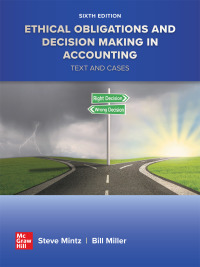Question
18. The elements of the balance sheet as identified by FASB Statement of Concepts No. 6 are: (a) liquidity, financial flexibility, and operating capability. (b)
18. The elements of the balance sheet as identified by FASB Statement of Concepts No. 6 are:
(a) liquidity, financial flexibility, and operating capability.
(b) assets, liabilities, and stockholders' equity.
(c) financial capital, physical capital, and contributed capital.
(d) current assets, property, plant, and equipment, current liabilities, long- term liabilities, and retained earnings.
19. Stockholders' equity is defined as:
(a) assets minus retained earnings.
(b) assets plus liabilities.
(c) liabilities minus assets.
(d) assets minus liabilities.
20. Current assets could include:
(a) accounts receivable, temporary investments, and land.
(b) cash, prepaid rent, and inventory.
(c) cash, accounts payable, and investments.
(d) accounts receivable, accumulated depreciation, and inventory.
21. Current assets minus current liabilities is called:
(a) liquidity.
(b) solvency.
(c) financial flexibility.
(d) working capital.
22. Property, plant, and equipment could include which of the following accounts?
(a) inventory
(b) franchise
(c) accumulated depreciation
(d) bonds payable
23. Intangible assets could include which of the following accounts?
(a) Patents
(b) Copyrights
(c) Trademarks
(d) All of the above
24. The equity that a company has in trade accounts receivable that it has assigned should be disclosed in its financial statements as a:
(a) separate component of the stockholders' equity section of the balance sheet.
(b) contra asset account.
(c) current liability.
(d) current asset.
25. The Austin Company records sales on account using the gross method and offers terms of 3/15, n/45. How would Austin record the entry of a credit sale of $1,000? The gross method is the process of recording an invoice at full price without regard to any cash discount offered.
a. Accounts Receivable 1,000 (Db)
Sales 970 (Cr)
Sales Discounts 30 (Cr)
b. Accounts Receivable 970 (Db)
Sales 970 (Cr)
c. Accounts Receivable 1,000 (Db)
Sales 1,000 (Cr)
d. Accounts Receivable 970 (Db)
Sales Discounts 30 (Db)
Sales 1,000 (Cr)
Step by Step Solution
There are 3 Steps involved in it
Step: 1

Get Instant Access to Expert-Tailored Solutions
See step-by-step solutions with expert insights and AI powered tools for academic success
Step: 2

Step: 3

Ace Your Homework with AI
Get the answers you need in no time with our AI-driven, step-by-step assistance
Get Started


